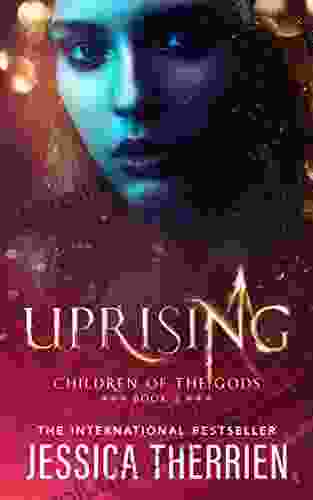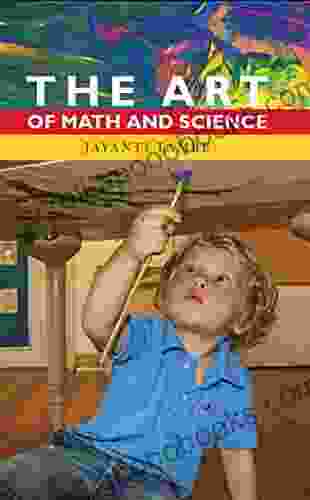Comparative Study: Revisiting Routledge Revivals

Comparative study is a crucial tool for understanding the complexities of human societies and political systems. It allows researchers to examine similarities and differences across cultures, countries, and historical periods, providing valuable insights into the factors that shape social and political outcomes.
Routledge Revivals is a series that brings back to print important works in the social sciences, including several seminal studies in comparative politics, sociology, and anthropology. These revivals offer scholars and students alike the opportunity to engage with classic works that have shaped the field.
5 out of 5
| Language | : | English |
| File size | : | 8136 KB |
| Text-to-Speech | : | Enabled |
| Screen Reader | : | Supported |
| Enhanced typesetting | : | Enabled |
| Word Wise | : | Enabled |
| Print length | : | 357 pages |
Comparative Politics
Comparative politics is the study of political systems and institutions across countries. It seeks to understand the variations in political structures, processes, and outcomes, and to explain why these variations exist.
One of the most influential works in comparative politics is Arend Lijphart's "Democracies: Patterns of Majoritarian and Consensus Government in Twenty-One Countries" (1999). This study compares democratic systems in various countries, arguing that they can be classified into two main types: majoritarian and consensus.
Lijphart's work has been highly influential in shaping the study of comparative politics, and his concept of majoritarian and consensus democracy has become a standard framework for analyzing political systems.
Comparative Sociology
Comparative sociology explores the similarities and differences in social structures, processes, and outcomes across societies. It seeks to understand the factors that shape social stratification, inequality, and social mobility.
A classic work in comparative sociology is Max Weber's "The Protestant Ethic and the Spirit of Capitalism" (1905). This study examines the relationship between Protestantism and the development of capitalism in Europe. Weber argues that Protestant values, such as hard work and thrift, contributed to the rise of capitalism.
Weber's work has been highly influential in shaping the study of comparative sociology, and his concept of the Protestant ethic has become a central topic in the field.
Comparative Anthropology
Comparative anthropology examines the similarities and differences in cultures, languages, and social organizations across human societies. It seeks to understand the origins and evolution of human behavior.
One of the most influential works in comparative anthropology is Bronisław Malinowski's "Argonauts of the Western Pacific" (1922). This study examines the kula ring, a complex system of exchange and ritual among the Trobriand Islanders in Papua New Guinea. Malinowski's work provides a detailed ethnography of the kula ring, and it has become a classic in anthropological research.
Malinowski's work has been highly influential in shaping the study of comparative anthropology, and his concept of the kula ring has become a central topic in the field.
Evolution of Comparative Research Methods
Comparative research methods have evolved over time, as scholars have developed new ways to collect and analyze data across cultures and countries. In the early days of comparative study, researchers relied heavily on qualitative methods, such as participant observation and interviews.
In recent decades, quantitative methods have become increasingly popular in comparative research. These methods allow researchers to collect and analyze large amounts of data, which can be used to test hypotheses and make generalizations.
The evolution of comparative research methods has led to a greater understanding of the similarities and differences across human societies and political systems.
Theoretical Frameworks in Comparative Study
Comparative study is based on a variety of theoretical frameworks, which provide researchers with a way to organize and interpret their findings. Some of the most common theoretical frameworks in comparative study include:
- Functionalism: This framework views society as a system of interconnected parts that work together to maintain equilibrium.
- Conflict theory: This framework sees society as a site of conflict between different groups and interests.
- Marxism: This framework emphasizes the role of economic factors in shaping social and political outcomes.
- Rational choice theory: This framework assumes that individuals make decisions based on rational calculations of costs and benefits.
The choice of theoretical framework depends on the specific research question being asked. However, all theoretical frameworks provide researchers with a way to organize and interpret their findings.
Empirical Findings from Comparative Study
Comparative study has produced a wealth of empirical findings about the similarities and differences across human societies and political systems. Some of the most important findings include:
- Political systems vary widely across countries. There is no single "best" political system, and the type of system that works best for a particular country depends on its unique circumstances.
- Economic development is associated with a number of positive social and political outcomes. Countries with higher levels of economic development tend to have more democratic governments, higher levels of education, and lower levels of crime.
- Culture has a significant impact on social and political outcomes. Cultural values and beliefs can shape everything from the way people interact with each other to the way they vote.
These are just a few of the many important findings that have emerged from comparative study. These findings have helped us to better understand the complexity of human societies and political systems, and they have provided valuable insights into the factors that shape our lives.
Comparative study is a powerful tool for understanding the complexities of human societies and political systems. It allows researchers to examine similarities and differences across cultures, countries, and historical periods, providing valuable insights into the factors that shape social and political outcomes.
Routledge Revivals offers scholars and students alike the opportunity to engage with classic works that have shaped the field of comparative study. These revivals provide valuable insights into the evolution of comparative research methods, theoretical frameworks, and empirical findings.
Comparative study is an essential tool for anyone who wants to understand the complexities of human societies and political systems. Routledge Revivals is a valuable resource for scholars and students alike, providing access to classic works that have shaped the field.
5 out of 5
| Language | : | English |
| File size | : | 8136 KB |
| Text-to-Speech | : | Enabled |
| Screen Reader | : | Supported |
| Enhanced typesetting | : | Enabled |
| Word Wise | : | Enabled |
| Print length | : | 357 pages |
Do you want to contribute by writing guest posts on this blog?
Please contact us and send us a resume of previous articles that you have written.
 Book
Book Novel
Novel Page
Page Chapter
Chapter Text
Text Story
Story Genre
Genre Reader
Reader Library
Library Paperback
Paperback E-book
E-book Magazine
Magazine Newspaper
Newspaper Paragraph
Paragraph Sentence
Sentence Bookmark
Bookmark Shelf
Shelf Glossary
Glossary Bibliography
Bibliography Foreword
Foreword Preface
Preface Synopsis
Synopsis Annotation
Annotation Footnote
Footnote Manuscript
Manuscript Scroll
Scroll Codex
Codex Tome
Tome Bestseller
Bestseller Classics
Classics Library card
Library card Narrative
Narrative Biography
Biography Autobiography
Autobiography Memoir
Memoir Reference
Reference Encyclopedia
Encyclopedia Lisa Walton
Lisa Walton Fina Casalderrey
Fina Casalderrey Wess Roberts
Wess Roberts Tim M Berra
Tim M Berra Brittney Joy
Brittney Joy C Scott Anderson
C Scott Anderson Deborah D Moore
Deborah D Moore John Stein
John Stein Bonnie K Hunter
Bonnie K Hunter Bill Evans
Bill Evans Brent Towns
Brent Towns Brian W Smith
Brian W Smith Guillermo Del Toro
Guillermo Del Toro Mac Mcclure
Mac Mcclure Kylar Wilde
Kylar Wilde Elizabeth Dubicki
Elizabeth Dubicki Charles Murray
Charles Murray Boo Paterson
Boo Paterson Bob Ojala
Bob Ojala Beverly A Devries
Beverly A Devries
Light bulbAdvertise smarter! Our strategic ad space ensures maximum exposure. Reserve your spot today!
 Clinton ReedFollow ·2.4k
Clinton ReedFollow ·2.4k Carl WalkerFollow ·5.1k
Carl WalkerFollow ·5.1k Dustin RichardsonFollow ·13.5k
Dustin RichardsonFollow ·13.5k Leo TolstoyFollow ·13.3k
Leo TolstoyFollow ·13.3k Andy ColeFollow ·17.2k
Andy ColeFollow ·17.2k Edward BellFollow ·6.2k
Edward BellFollow ·6.2k Brody PowellFollow ·2.5k
Brody PowellFollow ·2.5k Hugh ReedFollow ·11.6k
Hugh ReedFollow ·11.6k
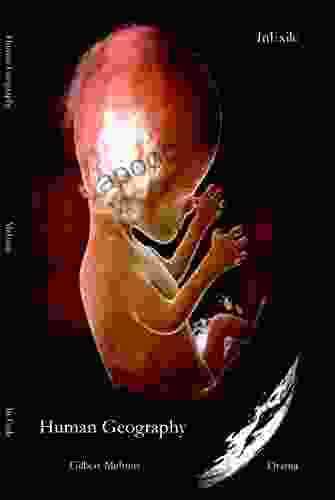
 Corey Green
Corey GreenHuman Geography: A Concise Introduction by Gilbert...
A Journey into the Dynamic Realm of...

 Julian Powell
Julian PowellTrain Your Mind to Make Great Art a Habit
Do you dream of...

 Matthew Ward
Matthew WardSmall Town Romance: Heart Compass
Escape to Willow Creek, Where...
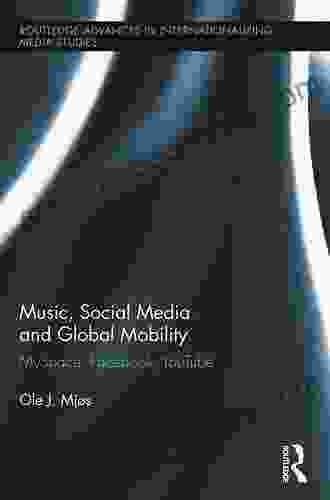
 Neil Parker
Neil ParkerMusic, Social Media, and Global Mobility: Exploring...
: The Convergence of Music, Media, and...
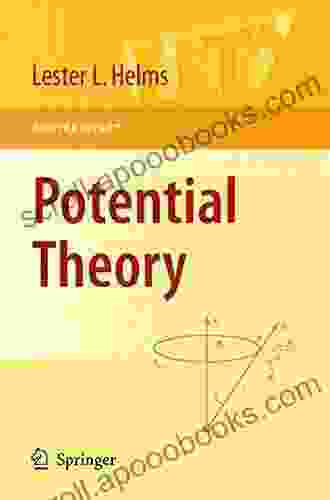
 Seth Hayes
Seth HayesUnlock the Potential of Potential Theory with Brooke...
Embark on an...
5 out of 5
| Language | : | English |
| File size | : | 8136 KB |
| Text-to-Speech | : | Enabled |
| Screen Reader | : | Supported |
| Enhanced typesetting | : | Enabled |
| Word Wise | : | Enabled |
| Print length | : | 357 pages |









